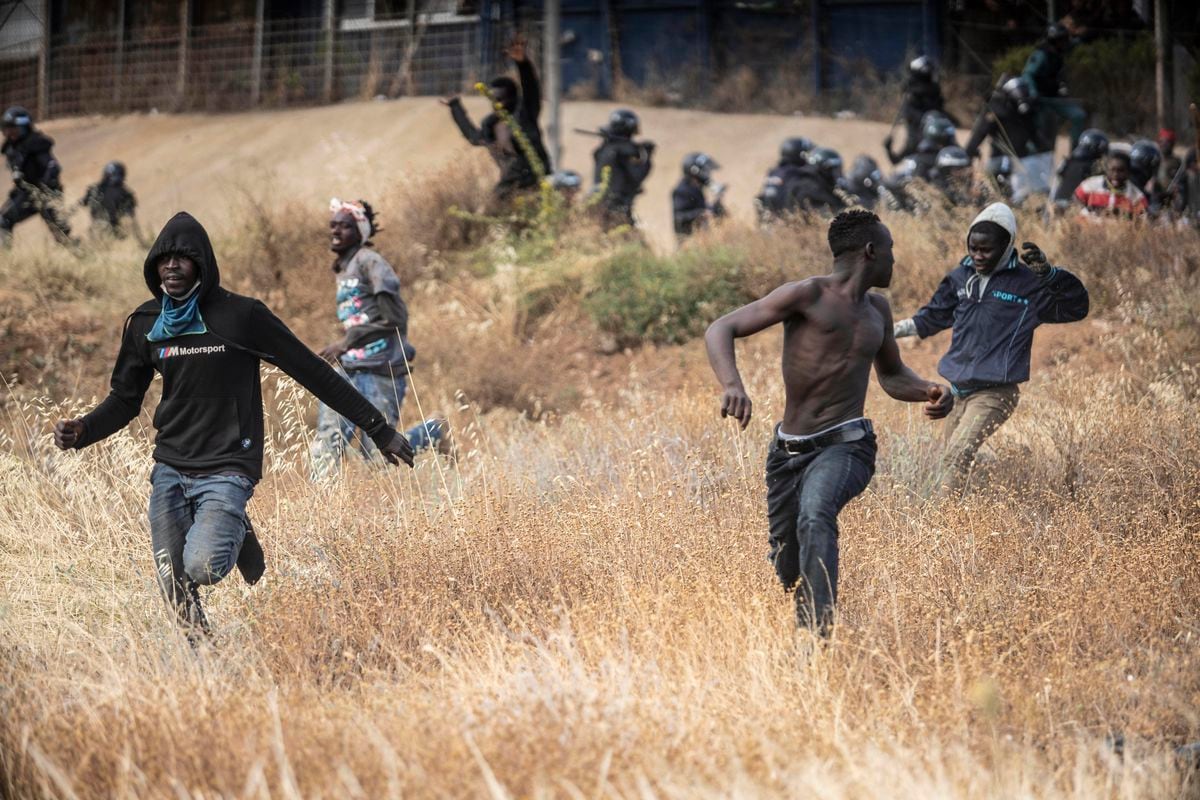The most difficult defense of the rule of law occurs on its margins.
A democracy demonstrates its true strength when it is capable of guaranteeing the rights and freedoms of those who cannot defend them on their own.
That is why the way in which the parliamentary groups of the PSOE and the Popular Party, among others, have decided to deal with the serious events that occurred in Melilla on June 24 is alarming.
In the midst of the decline of liberal democracies (Applebaum), the Spanish government parties are heading in a very dangerous direction.
The complaints about what happened in Melilla are well known and do not come from an obscure anti-system NGO.
In October of this year, the Ombudsman's Office issued a report in which it questioned the version of the Ministry of the Interior and pointed out the possible violation of fundamental rights, such as asylum and refuge.
Human rights organizations and the national and international media confirm these complaints, which include close to half a thousand forced returns, the intervention of the Moroccan police on Spanish soil, the concealment of evidence and, most important of all, a response cruel and incompetent that left migrants trapped in a mousetrap.
23 human beings officially died from suffocation or crushing, but the real number is probably higher.
Faced with this accumulation of evidence, the response of the Interior has been to lie first, and manipulate and drag feet later, as suggested by the forceful response of the Ombudsman to key aspects of the information provided by the Secretary of State for Security: coordination with Morocco, the risk for migrants or the "expedited deliveries" of potential asylum seekers.
They have even managed to agree between conservatives and anti-capitalists in the European Parliament's Interior Commission, which has called for an independent investigation into the matter.
In any democracy worth the name, the Minister of the Interior would already be on the streets and looking for good advice in which to grow old.
Not in Spanish democracy, unfortunately.
Because Fernando Grande-Marlaska has been shielded, until now, by his government and his party.
When, at first, Pedro Sánchez declared that the Melilla issue had been "well resolved", the president was not making a slip, but marking a strategy.
The penultimate movement of the PSOE has been to block a commission of investigation on this matter in Congress.
Before, they had taken care to leave the leading role of the parliamentary delegation that traveled to Melilla in the hands of Bildu, ERC and the PCE, to the chagrin of Savater and those who put trees before forests.
It is hard for me to think that there are many socialist militants and cadres who feel comfortable with this game, not to mention their voters.
The penultimate movement of the PSOE has been to block an investigation commission in Congress
The Popular Party and Ciudadanos are not very different.
Its purpose is not to protect Marlaska, but quite the opposite.
But the path they have chosen to do so is paradoxically similar to that of the PSOE: divert attention from the border and its victims, and dilute this matter in the quagmire that the plenary session of Congress has become.
Only Vox proves to live up to its own nauseating rhetoric.
The message that Spanish society has received is twofold.
On the one hand, the border is a territory of impunity;
on the other, the black dead are less dead.
Which brings us back to the theses of Applebaum, Snyder and many others who alert us to our existential problem: the national-populist movements are not conquering the world by winning elections, but by contaminating the parties that do so, displacing with it the red lines.
What was previously unacceptable to social democrats, liberals and Christian Democrats – such as repelling those fleeing war with sticks and gas – is now part of the toolbox of many European governments.
But, as in that well-used poem by Pastor Niemöller, if today it's them, tomorrow it could be us.
And then it will be too late to regret it.
You can follow PLANETA FUTURO on
,
and
, and subscribe
here
to our 'newsletter'
.

